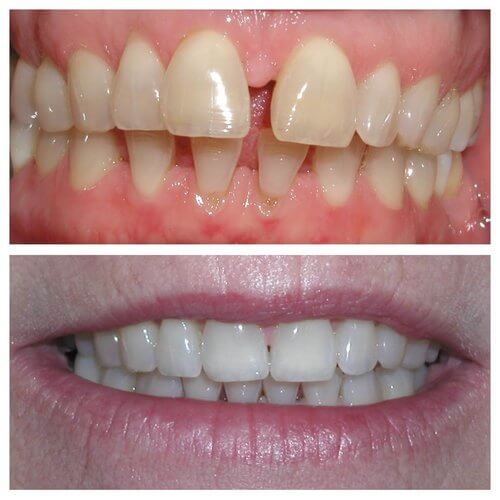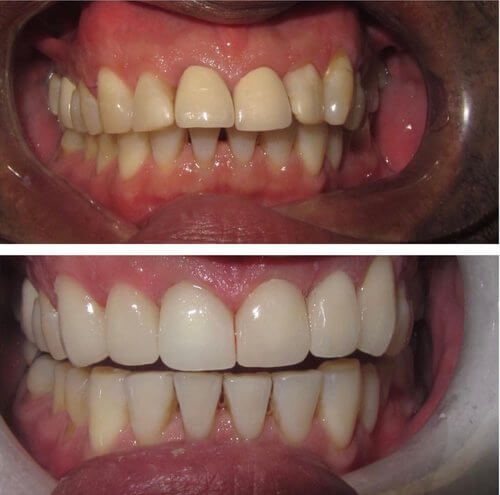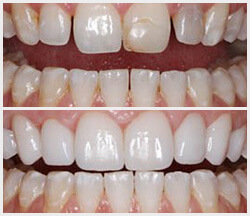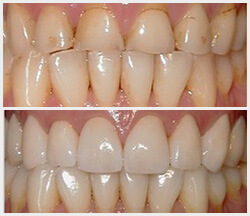Explore the Link Between TMD and Sleep Disorders
Temporomandibular joint disorders (TMD) and sleep apnea are two conditions that can impact your overall health and well-being. While they may seem unrelated, recent research has found a significant link between TMD and sleep apnea. Explore this connection and discuss the potential impact on your health, as well as when to seek treatment from your dentist.
What Is Sleep Apnea?
Sleep apnea is a sleep disorder that causes interruptions in breathing during sleep. There are three main types of sleep apnea:
- Obstructive sleep apnea is the most common type of sleep apnea and occurs when the muscles in the back of your throat fail to keep your airway open, despite efforts to breathe. As a result, the oxygen level in your blood drops, and your brain is briefly aroused from sleep to signal the muscles to tighten and open the airway.
- Central sleep apnea is less common and occurs when the brain fails to signal the muscles to breathe, resulting in a temporary lapse of breathing during sleep. Unlike obstructive sleep apnea, there’s no physical obstruction in the airway.
- Complex sleep apnea syndrome is a combination of both obstructive and central sleep apnea. It occurs when someone with obstructive sleep apnea develops central sleep apnea after using a continuous positive airway pressure (CPAP) machine to treat their condition.
Regardless of its type, sleep apnea can have serious consequences for your health and well-being if left untreated. If you suspect you have sleep apnea, speak with our Staten Island dentists who can help determine a course of treatment.
The Connection Between TMD and Sleep Apnea
Recent studies have suggested that there may be a link between TMD and sleep apnea. One study found that nearly 40 percent of patients with TMD also had sleep apnea.
TMD can cause pain and discomfort in the jaw, neck, and shoulders, making it difficult to fall and stay asleep. Additionally, TMD can lead to muscle tension and spasms in the upper body, including the muscles that control breathing. This can make it harder to breathe normally during sleep, leading to snoring, gasping, or choking.
On the other hand, sleep apnea can also contribute to the development of TMD. This is because sleep apnea can cause repeated teeth grinding and clenching, which can strain the TMJ and lead to painful symptoms.
Signs of TMD Caused by Sleep Apnea
Signs that TMD may be caused by sleep apnea include:
- Jaw Pain: Sleep apnea can cause teeth grinding and clenching during sleep, which can put excessive strain on the TMJ and lead to TMD symptoms such as jaw pain.
- Headaches: Sleep apnea can cause headaches due to the lack of oxygen in the body during sleep. These headaches may be felt in the temples or behind the eyes.
- Neck and Shoulder Pain: Sleep apnea can cause muscle tension and spasms in the upper body, including the muscles that control breathing. This can lead to neck and shoulder pain, which can contribute to TMD symptoms.
- Limited Jaw Movement: Sleep apnea can cause pain and discomfort in the jaw, neck, and shoulders, making it difficult to move the jaw properly. This can lead to limited jaw movement.
- Ear Pain: Sleep apnea can cause pressure changes in the ear, which can lead to ear pain. Discomfort may be felt in the ear itself, or the TMJ area.
Treatment for Sleep Apnea and TMD
Fortunately, there are treatment options for TMD and sleep apnea. For TMD, treatment may include physical therapy, medications, or oral appliances such as splints or mouth guards. For sleep apnea, treatment may include:
- Continuous positive airway pressure (CPAP) therapy, involves wearing a mask over the nose or mouth. It delivers a stream of air to keep the airway open during sleep.
- Bi-level positive airway pressure (BiPAP) therapy, delivers air at different pressures during inhalation and exhalation.
- Oral appliances are custom-made devices that are worn in the mouth to help keep the airway open during sleep.
- Surgery in some cases, such as tonsillectomy or adenoidectomy, removes obstructive tissue in the airway.
For some, treating one condition may also help alleviate the symptoms of the other. For example, treating sleep apnea with a CPAP machine may help reduce teeth grinding and clenching, which can help alleviate TMD symptoms.
If you suspect you have TMD or sleep apnea, seek treatment from a skilled dentist like Dr. Name. Left untreated, these conditions can have serious consequences for your health and well-being.
Frequently Asked Questions
Who should I see if I suspect I have TMD or sleep apnea?
If you suspect you have TMD or sleep apnea, schedule an appointment with your dentist or doctor. They can perform an examination and refer you to a sleep specialist or an oral and maxillofacial surgeon. The doctor you’re referred to will depend on your TMD symptoms.
Will treating sleep apnea help with TMD?
There’s some evidence to suggest that treating sleep apnea can help alleviate symptoms of TMD. When sleep apnea is treated with a continuous positive airway pressure (CPAP) machine or other methods, it can reduce the tension and strain on the jaw joint during sleep. This can improve TMD symptoms, such as pain and difficulty opening the mouth.
What is the best sleeping position for TMD?
For individuals with TMD, sleeping on their back with a small pillow or rolled towel under the neck for support is recommended. Sleeping on the stomach should be avoided as it can put unnecessary strain on the neck and jaw. Consult a sleep specialist for more tips on managing TMD and sleep apnea.
Can CPAP therapy make TMD worse?
While CPAP therapy can help alleviate symptoms of sleep apnea, the pressure of the machine can exacerbate TMD symptoms. Some adjustments can be made to the CPAP machine to reduce the pressure on the jaw joint, such as using a different mask or adjusting the pressure settings. Follow all instructions from your healthcare professional to ensure your CPAP machine is properly adjusted and effective in treating both sleep apnea and TMD.
Improve Your Sleep and Jaw Pain With Personalized Care
If you’re experiencing symptoms of TMJ or sleep apnea, seek medical attention from our Staten Island dentists. They can properly diagnose your condition and recommend the best treatment for your needs. Don’t hesitate to speak up and seek help — these conditions can significantly impact your quality of life and overall health. Take control of your health and schedule a consultation today.



Insurance
We accept many insurances. Please contact one of our Insurance Coordinators to discuss your dental coverage plan.
(718) 948 5111
appointments@sidental.com
Open 7 days a week
Reviews
The dentists are absolutely excellent…
“I have been going here for years. The dentists are absolutely excellent and they always have an appointment available that fits into a busy schedule. I also completed invisilgn and my teeth are perfectly straight now. They also practice preventive medicine and just went in for my 6 month cleaning. Every time feel like I have a new set of choppers and best yet the check up noted no cavities!.”
— J.R
Pleasant visit
“As usual, it was a pleasant visit thanks to Dr. Nasso and her great staff..”
— C.M.
Always treated with courtesy and respect.
“Always treated with courtesy and respect. All of my questions were answered regarding upcoming treatments..”
— J.C.
Smile Profile




Put your best face forward.
Create a positive change to your teeth and your smile.
